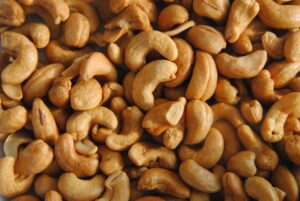By Sharon Oliver, Contributing Writer

REGION – The importance of amino acids, molecules used by the body to produce proteins needed for growth and repair of cells, is often overlooked. These “building blocks of protein” are essential to our immunity, looks, sleep, energy and insulin levels. In fact, our bodies require 20 different amino acids. While the body makes hundreds of amino acids, there are nine acids it cannot make. So, what do we do? Eat a well-balanced nutritional diet that contains amino acids.
But for some people, it’s not easy to eat right without some assistance. Owner and practice manager Amy Gardner describes Metrowest Nutrition and Therapy as “a group nutrition, psychotherapy, occupational therapy practice centered around helping individuals heal from their relationship with food, movement, body and self.” It has locations in Newton, Framingham, and Westborough. “We also work with our clients around grocery shopping and dining out as all these things may be challenging to them,” said Gardner.
Plant-based protein sources include pea protein, quinoa, soybeans, and tofu. Other sources include dairy, fish, eggs, meat, and poultry. To break this down even further, below is a list of the various types of amino acids, their purpose and food sources.
Types of amino acids
Valine helps with energy and stimulation of muscle growth. Athletes and bodybuilders are known for supplementing with this amino acid. Plant-based food sources include brown rice, wild rice, beans, cashews, cooked broccoli, lentils, mushrooms, pistachios, pumpkin seeds, sunflower seeds, oats, quinoa, and wheat germ. Also, cottage cheese, eggs, yogurt, and red meats such as beef and lamb.
Tryptophan, a precursor to melatonin, is essential in the production of serotonin to regulate sleep, appetite, mood and pain. Plant-based food sources include almonds, beans, cashews, chia seeds, lentils, oats, pistachios, pumpkin seeds, spirulina and wheat germ. Also, chicken, turkey, fish, eggs, milk, tofu and soy.
Threonine is responsible for the structure of collagen and elastin and plays a role in maintaining a healthy gut and digestive tract, fat metabolism and immune function. It helps build strong bones and tooth enamel and supports the central nervous system. Plant-based food sources include almonds, beans, cashews, lentils, flaxseeds, peanuts, pistachios, pumpkin seeds, sunflower seeds, spirulina, and wheat germ.
Phenylalanine assists in the function of proteins and enzymes along with the production of other amino acids. Plant-based food sources include almonds, brown rice, wild rice, cashews, oats, quinoa, spirulina, peanuts, pistachios, pumpkin seeds, and wheat germ.
Methionine helps with detoxification, metabolism function, healthy hair, skin and nails, the absorption of zinc and selenium, tissue growth and protection of cells from free radical damage. Plant-base food sources include Brazil nuts, beans, soybeans, and tofu. Also, corn, cauliflower, oatmeal, pork, canned tuna, and lobster tail.
Lysine is used for tissue repair, calcium absorption and the production of hormones and enzymes and may help with conditions like anxiety and herpes flares. Food sources include Fenugreek seeds, Brewer’s yeast, peas, eggs, red meat, fish, and poultry.
Leucine helps promote healing of bones, muscle tissue and skin after severe stress or trauma. It also helps stimulate insulin release. Food sources include corn, almonds, peanuts, brown rice, navy beans, pistachios, sesame seeds and lentils.
Isoleucine is used to produce hemoglobin, a protein in red blood cells. It also helps regulate blood sugar, energy levels and repair muscle. Foods high in isoleucine include seaweed, sesame seeds, beans, oats, beef (skirt steak), lean chicken breast, lean pork chops, tuna, tofu, squash, pumpkin seeds, salami, avocado, apricots, kiwi fruit and toasted wheat germ.
Histidine is beneficial to the body in many ways: digestion, immunity, reduction of inflammation, protecting the skin against UV radiation, producing carnosine, which reduces plaque buildup in the arteries, reduce fatigue and much more. Food sources include legumes and beans, cauliflower, potatoes, corn, poultry, fish and seafood, and protein powders.
RELATED CONTENT:
The importance of eating enough leafy greens (fiftyplusadvocate.com)
Liven up your garden with unique fruits and veggies (fiftyplusadvocate.com)
Plant-based “superfoods” touted to prevent disease and prolong life (fiftyplusadvocate.com)












